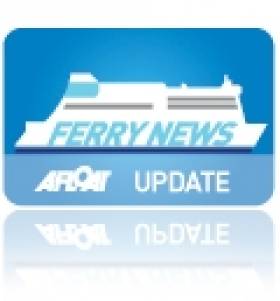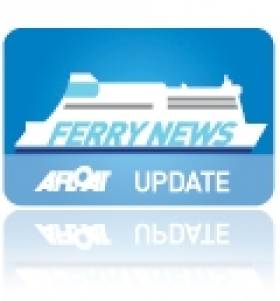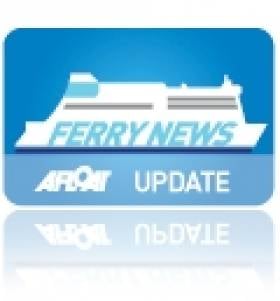Displaying items by tag: Ferry Fortnight
'Ferry Fortnight' Returns Across UK Network
#FerryFortnight – The UK's National Ferry Fortnight (2-15 March) began today.
The annual event is to increase greater awareness of the ferry industry in which there are more than 75 routes operating to and from the UK.
Comprehensive details of ferry companies and routes from the UK to Ireland and the near continent are given here. In addition on routes serving the Channel Islands, Scottish Isles, the Isle of Man and Isle of Wight.
There are direct UK-Europe routes to Belgium, Holland, France and Spain as well as access to Germany, Scandinavia and beyond.
A total of 13 ferry operators have come together with offers to celebrate the Ferry Fortnight.
Early Start for 'Ferry Fortnight'
#FERRY NEWS – St.Patrick's Day coincides with the start of the UK's annual National Ferry Fortnight (17-30 March) campaign which includes the participation of over 50 routes, including those operating on the Irish Sea, writes Jehan Ashmore.
This year's event organised by the Passenger Shipping Association (PSA) is to be brought forward two months earlier instead of May. According to the PSA the change of dates was designed to "emphasise the great value of family ferry travel at a time when parents have a watchful eye on budgets".
A new official logo will front the campaign's website www.discoverferries.com which is supported by all ferry line members of the association. The two week showcase aims to heighten consumer and media awareness of the UK's extensive ferry firms route network.
PSA members include Brittany Ferries, Condor Ferries, DFDS Seaways, Hovertravel, Isle Of Man Steam Packet Company, Irish Ferries, LD Lines, P&O Ferries, Red Funnel, Stena Line and Wightlink.
The association estimate that around 35 million people, 8 million cars and 140,000 coaches were carried by ferries last year.
New Dates for National Ferry Fortnight
#FERRY FORTNIGHT - This year's 'National Ferry Fortnight' organised by the Passenger Shipping Association is to be brought forward in March instead of May, according to TravelWeekly.co.uk.
The annual event which is used to promote and increase awareness of the UK ferry industry has set the new dates of the fortnight between the 17th-31st March.
According to the PSA the change of dates was designed to "emphasise the great value of family ferry travel at a time when parents have a watchful eye on budgets".
PSA which also represents the UK cruise sector had 13 ferry members but SeaFrance, a Dover-Calais operator recently went into administration.
A new official logo will front the campaign which is supported by all ferry line members of the association. The two week showcase aims to heighten consumer and media awareness of the UK's more than 50 ferry routes.
PSA members including Brittany Ferries, Condor Ferries, DFDS Seaways, Hovertravel, Isle Of Man Steam Packet Company, Irish Ferries, LD Lines, P&O Ferries, Red Funnel, Stena Line and Wightlink will take part.
It comes as the association estimated that around 35 million people, 8 million cars and 140,000 coaches were carried by ferries in 2011.
A series of promotional offers on ferry routes are planned as part of the campaign, to the Continent, Spain, Ireland and UK islands which promoted on the discoverferries.com website.
PSA director Bill Gibbons said: "Particularly for families, Britain's ferry services offer a reliable and flexible way to travel that's good value for money.
"Our ferry members are keen to bring forward the success of National Ferry Fortnight to March 2012 so families can plan and take advantage of the great range of opportunities presented by ferry companies."































































